Hill Biscuits CEO Frank Bird has recently unveiled plans to roll out £2m of investments over the next 12 to 18 months, delivering key projects to meet increased demand for their value-for-money products.
“Our focus spans all areas of the business, developing a pivotal point on efficiency and bakery performances, whilst ensuring that quality is at the heart of our enhancements,” says Bird, who assumed the leadership role of the Manchester-based manufacturer in May 2023.
The substantial investment is backed by the manufacturer’s main shareholder LDC Private Equity, part of the Lloyds Banking Group, which supported a management buyout from existing owners in 2017.
Hill Biscuits will use the funds to purchase and install new technology to improve manufacturing efficiencies and increase capacity within its current on-site bakery setup, which will in turn grow turnover and profit margins.
“There is an equal significance placed on process and product development,” notes Bird, adding that creativity should always extend to operating methods as much as product design. “This is where we are focussing our capital investments.”

Recent senior appointments are helping to support Bird with the firm’s new growth strategy including operations director Simon Worth, CFO Brendon Ward-Banner, and commercial director Tracey Meadows.
“The senior team is now leading a transformation of the working practices at the factory, establishing new standards across the company with a data-driven approach,” Bird comments.
Prior to his own appointment, Bird was familiar with Hill Biscuits through its executive chairman Steve Greenhalgh, who had been an acquaintance from back when they were engineers in the aircraft industry before working together at Kate’s Cakes. Bird has 30 years of experience in the food sector including managerial positions with Honeyrose Bakery, CSM Bakery Solutions (as it was previously known), Délifrance, and Aryzta.
Baking the biscuit
Founded by John and Sarah Hill in 1855, Hill Biscuits has been producing its range of sweet treats for retail and foodservice customers for the past 130 years at its Tudno Mill factory in Ashton-under-Lyne, on the east side of Greater Manchester.
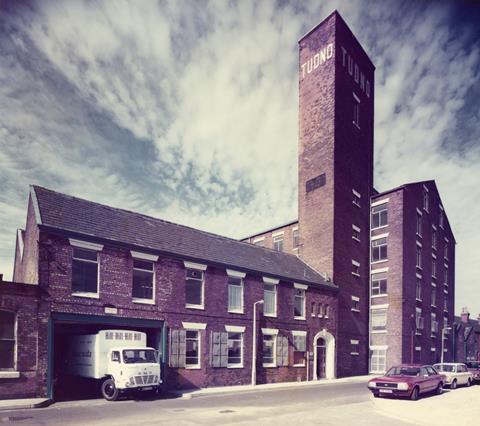
Approximately 20,000 tonnes of biscuits are made per year at the two-acre site, a figure it is looking to increase to cater for new contracts and growing demand from existing customers – some of its supply relationships with discount retailers, wholesalers, and foodservice operators go back 20 years.
The factory creates around 120 different biscuit products on a weekly basis using three production lines – one that goes back to the 1950s, and two that were installed around 10 years ago. Most recent updates to these lines were conducted in 2019.
Bestselling products are its custard creams and bourbons. It also produces sandwich biscuits filled with flavours including chocolate, orange, strawberry, lemon, coconut, and digestive.

Additionally, Hill produces fig rolls, fruit shortcakes, oaties, malted milks, coconut rings, gingerbread men, and pink wafers, along with rich tea, digestive, and Nice biscuits. Packet sizes range from 150g up to 300g, while assortment boxes for foodservice customers are also available.
The business is able to sit on a large amount of stock thanks to the relatively long shelf life of its biscuits.
Tech solutions
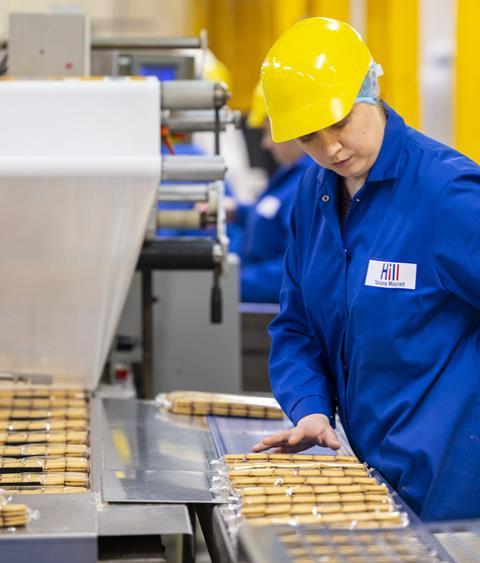
As part of the investment scheme, the company is replacing or enhancing its existing creaming equipment used for its range of sandwich biscuits. Automation is also planned for certain labour-intensive and repetitive tasks associated with packing processes, which would allow staff to be utilised in more effective ways of running the business.
The firm has also begun making greater commitments towards sustainability, especially in terms of its energy usage, with an Energy Savings Opportunity Scheme (ESOS) Phase 3 audit initiated and more work done with ingredients suppliers to cut down on waste.
The site itself will not be expanded, Bird tells British Baker, although he does reveal an idea to redevelop a warehouse into a new production facility with storage of finished products handled by a third party logistics firm.
People and passion
A full-time workforce of roughly 350 maintains traditional daytime shifts – 6am to 2pm and 2pm to 10pm, Mondays to Fridays – at the Tudno Mill site, although production has been stepped up more recently with an extra day of overtime at the weekend.
“The people are very much open to change, which is fantastic”
As a long-term employer in the local area, Hill Biscuits has seen generations of families come and go through its factory doors. “There’s people that are working here now whose grandads and grandmas have worked here in the past,” noted Bird, sharing a heartwarming statistic that 23% of its current staff having been on the payroll for 15 years or more.
Bird described them as being “a great bunch of people with great passion”, who had given a warm northerly welcome despite him coming from the south of England. “That’s always makes life easier, especially when you’re trying to focus on your growth plans,” he added. “The people are very much open to change, which is fantastic.”
Future growth
Hill’s results have reflected an upwards trajectory of its business in recent times – it posted revenue of £21.7m for its 2021 financial year, and then £26.3m for FY22. The company claims to have achieved ‘impressive 50% growth’ in 2023, with projection set to rise even further this year.
“Growth opens so many different doors into investments and how we plough that money back into staff training and those kinds of things,” comments Bird, noting that they weren’t looking to necessarily expand its customer base but encourage growth within it.
“I think the 2024 will be a period of growth for organic sales and then take a breath in a sense to look at how we want to develop going into 2025 and 2026,” he adds.
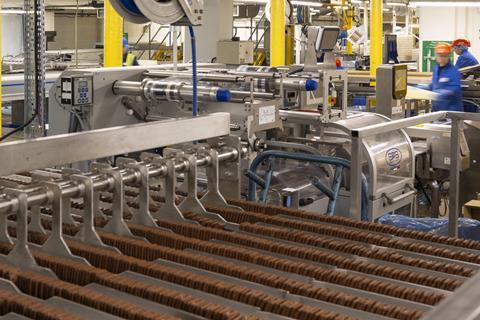
Bird also reveals an ambition to explore potential co-manufacturing partnerships this year in the hope of relaunching the Sarah Hill brand, a range of premium biscuits such as cookies and shortbread that was named after the company’s co-founder.
Having first been introduced four years ago but failing to receive a “sufficient push behind it from the business”, according to Bird, the brand could potentially stage a comeback via an event coinciding with the company’s 170th anniversary celebrations next year.



















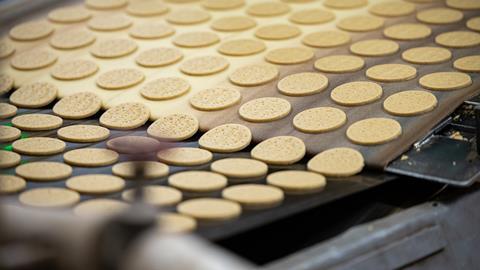
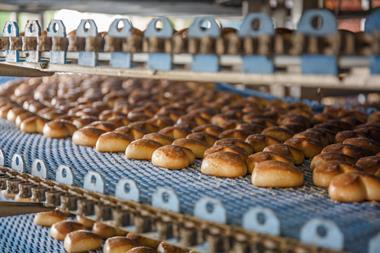

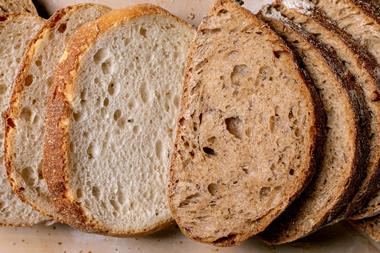

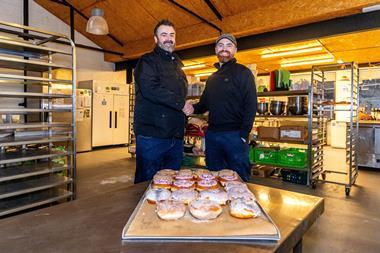
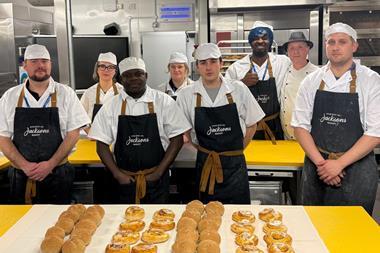


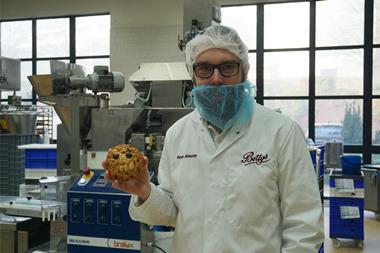

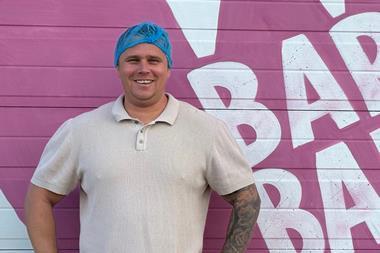
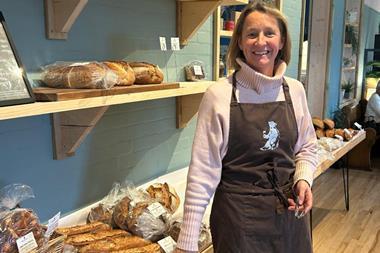

No comments yet